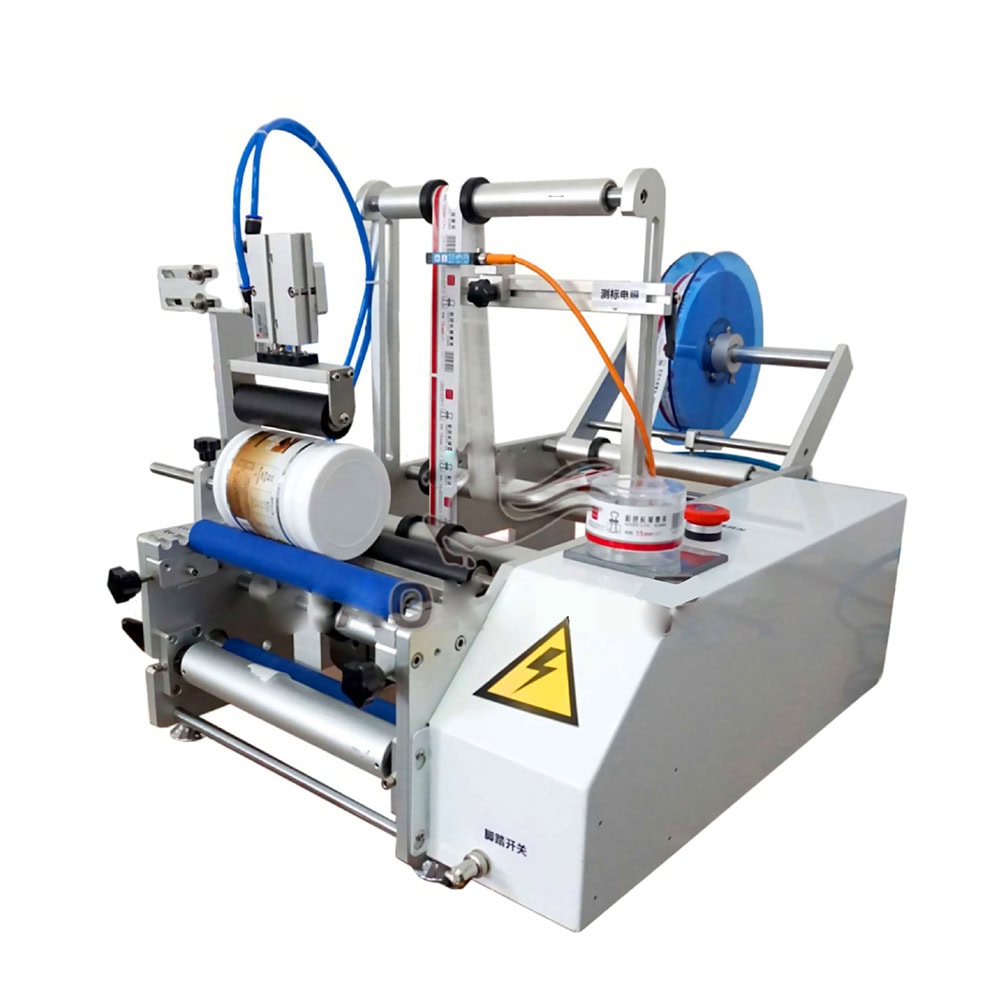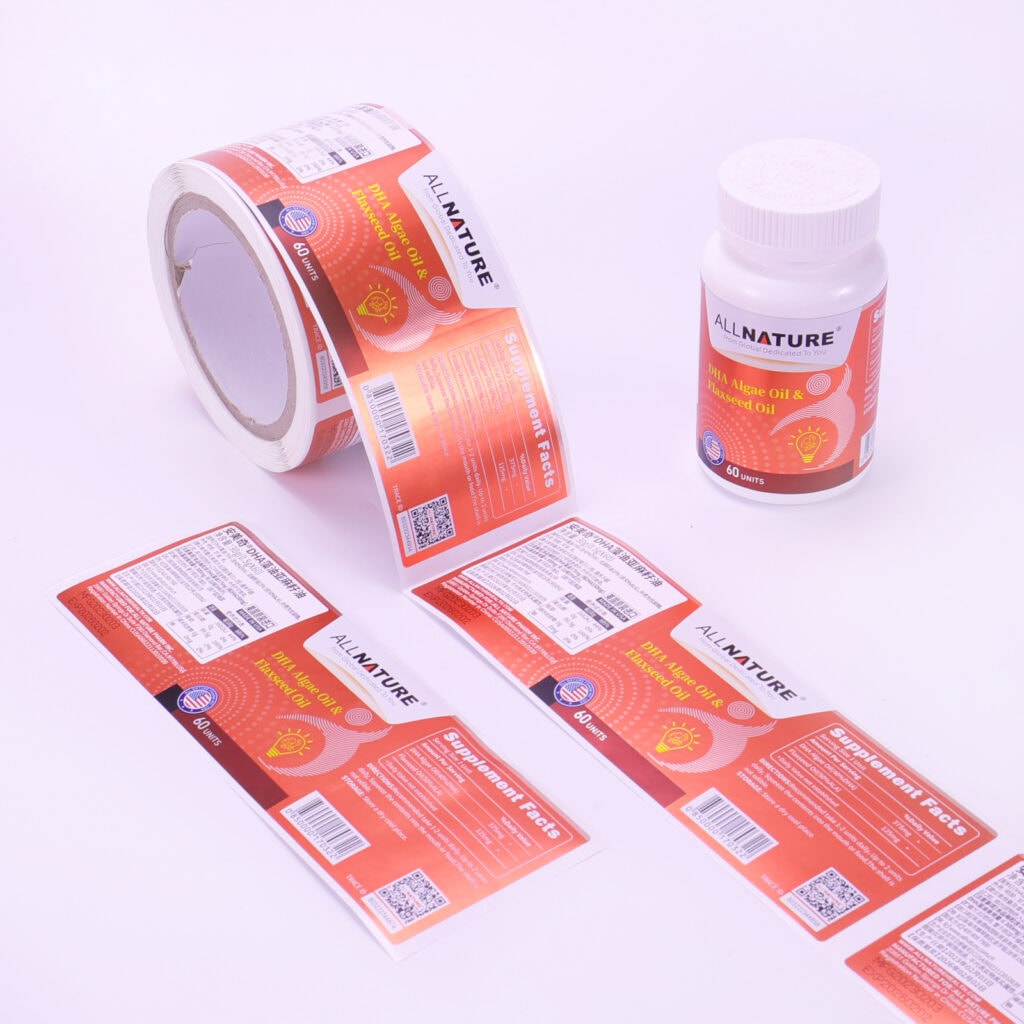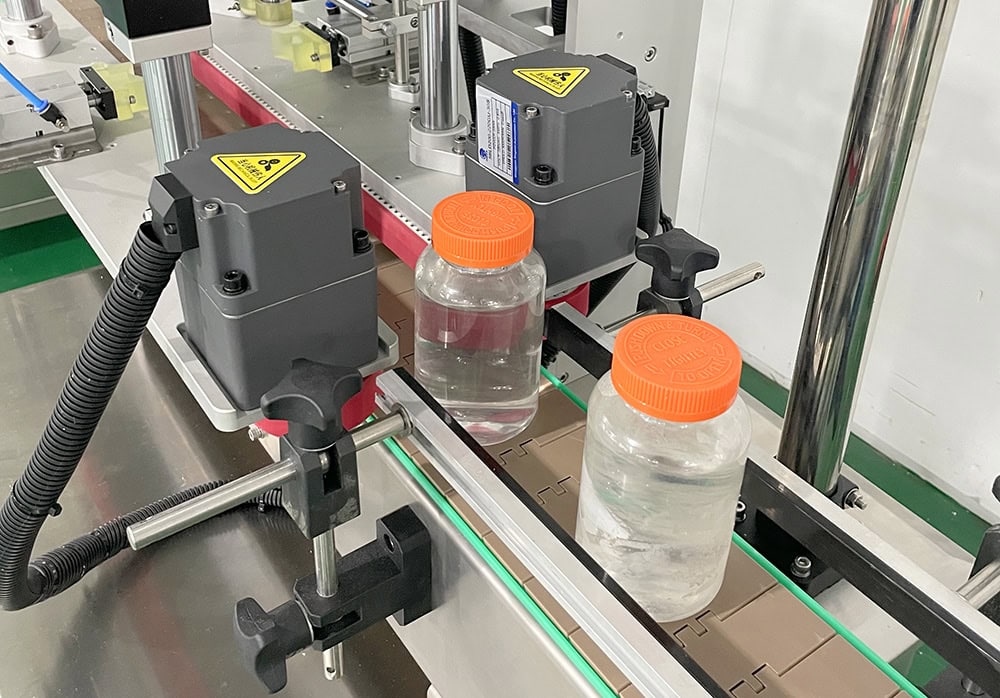Container labeling machines are essential for efficiently and accurately labeling products in a variety of industries. Their advanced features ensure seamless integration into production lines while maintaining high levels of precision and reliability.
These machines offer precision, speed, and versatility to meet diverse labeling needs across industries.
Below, we explore the essential features that make container labeling machines indispensable.

Precision Label Application
Achieving accurate label placement on containers of varying shapes and sizes is a hallmark of advanced labeling machines.
- Enhanced Accuracy: Features such as sensors and alignment systems ensure labels are applied precisely, enhancing product presentation and regulatory compliance.
- Flexible Options: Machines like the wrap around labelers cater to cylindrical containers, providing 360-degree label coverage.
High-Speed Operation
For high-volume production lines, speed is critical to meeting demand.
- Performance: Many container labeling machines can process hundreds or even thousands of items per hour.
- Efficiency Boost: High-speed labeling reduces operational costs and increases throughput, complementing other equipment like bottle filling machines.
Versatile Labeling Options
Container labeling machines are designed to handle a wide variety of labeling requirements.
- Customizability: They support labels of different sizes, shapes, and adhesive types, accommodating diverse product and packaging needs.
- Adaptability: Machines like customized labeling machines are tailored to specific industry requirements, ensuring a perfect fit for unique applications.

User-Friendly Interface
A simple, intuitive interface allows operators to efficiently manage the labeling process.
- Ease of Use: Touchscreens and customizable settings make operation straightforward, even for beginners.
- Adjustability: Operators can easily modify parameters such as speed, label placement, and container size without requiring extensive technical knowledge.
Durable Construction
Robust construction ensures that labeling machines withstand demanding production environments.
- Material Quality: Built from stainless steel and other high-grade materials, these machines resist wear and tear, ensuring longevity.
- Low Maintenance Needs: Durable components reduce the frequency of repairs, maximizing uptime.
Easy Maintenance
Maintenance-friendly designs keep machines running smoothly.
- Quick Access: Machines are engineered for easy cleaning and component replacement.
- Longevity: Routine maintenance ensures consistent performance and minimizes downtime.
Integration Capabilities
Seamless integration into existing production lines enhances workflow efficiency.
- Compatibility: Labeling machines can work with packaging machines, vacuum packaging machines, and other equipment.
- Streamlined Production: Synchronization with upstream and downstream processes ensures a continuous and efficient operation.

Advanced Container Orientation Systems
Sophisticated orientation systems ensure containers are correctly positioned for labeling.
- Technology: Sensors and cameras detect container orientation, ensuring accurate label application.
- Use Cases: This feature is particularly valuable for irregularly shaped containers, such as those used in specialty packaging.
Adaptability to Various Container Types
Modern labeling machines can handle a wide range of container materials and shapes.
- Broad Applications: From bottles and jars to cartons and pouches, these machines accommodate diverse container designs.
- Industry Applications: Their versatility makes them suitable for industries such as food, pharmaceuticals, and cosmetics.
Compliance with Industry Standards
Meeting labeling standards is critical for maintaining regulatory compliance and customer trust.
- Consistency: These machines ensure labels are applied uniformly and adhere to industry guidelines.
- Legal Requirements: They help businesses meet legal labeling mandates, reducing risks of fines or recalls.
Conclusion
Container labeling machines combine precision, speed, and flexibility to meet the complex demands of modern production. By incorporating advanced features and seamless integration capabilities, they are vital tools for enhancing efficiency and product quality.









